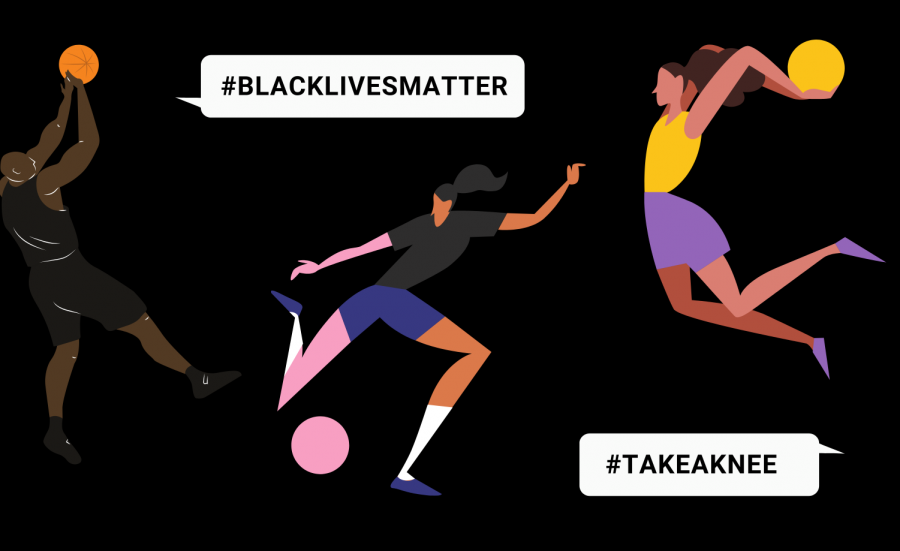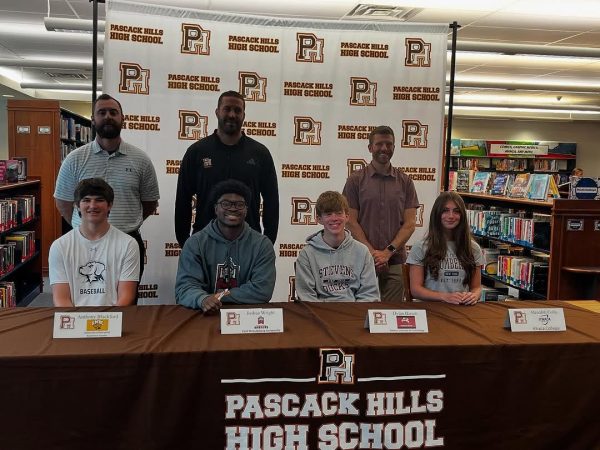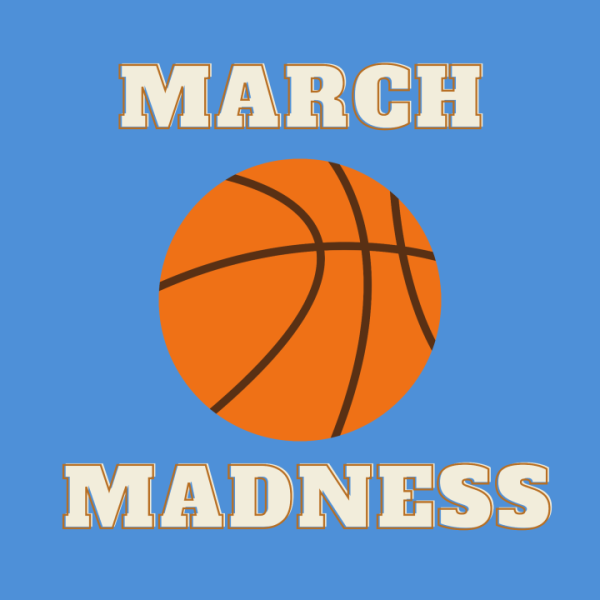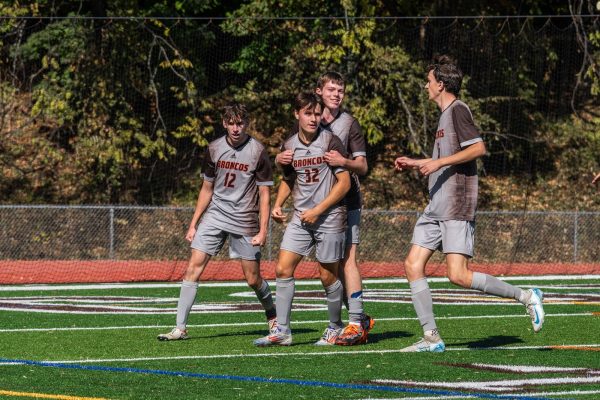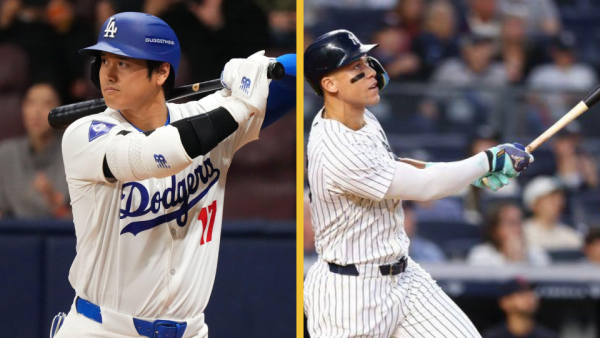Social justice in sports: A brief history
Improvements have been made –– and still are being made –– in professional sports so that they can treat players of all types as equally as possible.
Participation in organized sports should be available to everyone. Sports are an excellent form of exercise and entertainment, and they don’t discriminate by race, class, or gender. Unfortunately, however, that hasn’t always been the case. Improvements have been made –– and still are being made –– in professional sports so that they can treat players of all types as equally as possible.
1946
Jackie Robinson breaks the baseball color barrier
In the early 1940s, African American and white baseball players were being completely segregated into two leagues: The MLB along with its minor leagues, and a series of leagues for African Americans called the “Negro Leagues” at the time. African American players and games were treated with a significantly lower level of respect than in the MLB. However, big changes were coming in 1946.
aDVERTISE HERE
Jackie Robinson, an aspiring young African American player, was making his mark on the “Negro Leagues”. Although he was performing well, Robinson was upset with the management of the League, and he pursued a career as the first African American in the Major League. Branch Rickey, general manager of the Brooklyn Dodgers was interested in an African American player, and Robinson had seemed like the perfect choice. Robinson, after Rickey had warned him of the harassment he may receive for his skin color, was signed to the Montreal Royals—a minor league team—before he would eventually make it to the Dodgers in 1947.
Rickey’s warnings ended up coming true, as Robinson faced much ridicule upon entering the MLB, although his teammates tried to help when possible. Robinson managed to push through despite this, proving himself as not just a great baseball player, but as a baseball legend. He earned the Rookie of the Year award, an MVP award, and made it to six World Series Championships (only winning one of them).
Robinson’s legendary baseball career led to major advances for racial diversity in the MLB. Today, the MLB is composed of players from a wide variety of backgrounds and ethnicities. Although Jackie Robinson was not the only African American ballplayer at the time, he was the first, and his bravery changed the makeup of the MLB forever.
1996
Formation of the WNBA
The WNBA is an American professional basketball league, and it is the NBA’s equivalent for female players. This was naturally a major step in women’s sports, expanding one of America’s most popular forms of sports entertainment to female players (although a women’s basketball league had been made one or two years prior to its founding, the WNBA had the advantage of being run by the NBA).
Opening with the fittingly titled, “We Got Next,” marketing campaign, the WNBA took off fast, and has since expanded from eight teams to twelve teams. Since its debut game in June of 1997, the WNBA has increased greatly in popularity and pop culture relevance, even getting the chance to finish its playoff games alongside the NBA inside 2020’s NBA Bubble.
Although some issues still need to be addressed in the WNBA, such as the issue of WNBA wages compared to those of the NBA, it has helped pave the way for other professional women’s sports leagues (such as the National Women’s Soccer League) and has made a clear impact on the sports world.
2016
Colin Kaepernick kneels during the national anthem
Opting to not stand for the National Anthem became a topic of frequent discussion and debate in the world of sports throughout 2016 and onward, and it started with San Francisco 49ers quarterback, Colin Kaepernick. Originally choosing to sit before switching to a kneeling position, Kaepernick silently protested police brutality in support of the Black Lives Matter movement during the 2016 preseason and midseason games.
As the season went on, more and more of Kaepernick’s fellow players began to join in. However, this form of protest also had its fair share of controversy, as many disagreed with the players’ choice to “disrespect the flag”.
This all changed when, prior to the 2018 season, the NFL approved a policy forcing all players to stand for the National Anthem or stay in the locker room instead of kneeling. The decision was met with much backlash, but players still tended to obey the rules and stand for the National Anthem again.
Going into the 2020 season, a group of NFL players issued a video statement to the league commissioner, Roger Goodell, asking the league to make an official address on racial inequality in the NFL. Goodell responded with his own video, apologizing for the NFL’s treatment of the previous protests and condemning all forms of racism and discrimination.
With the 2020 NFL season having recently begun, many players have decided to yet again kneel during or sit out on the National Anthem. Kaepernick, by making the small choice to sit during the National Anthem four years ago, has started a major political movement, the effects of which are still being felt in the NFL today.
2020
The Black Lives Matter movement and the NBA bubble
In 2020, the Black Lives Matter movement has continued to grow following the tragic deaths of George Floyd and Breonna Taylor, along with many examples of the poor treatment of African Americans. Having both a prominent position in American culture and a large roster of African American athletes, the NBA has made many steps to support the BLM movement in the NBA Bubble.
As the season began, fans would notice the “BLACK LIVES MATTER” lettering on the sides of the basketball court, along with many players wearing encouraging social justice phrases on their jerseys instead of their names (including “Equality”, “Say Their Names”, “I Can’t Breathe”, and more).
Midway through the 2020 playoffs, tragedy struck when a 29-year-old African American man, Jacob Blake, was shot and eventually killed by police in Wisconsin. After hearing the news pre-game, the Milwaukee Bucks chose to sit-out one of their playoff games against the Orlando Magic, and soon after, the other NBA teams playing that day chose to sit-out as well. The NBA, acknowledging this protest, agreed to postpone all of the games scheduled for that day. This unexpected movement lead by these NBA players even spread to other major sports leagues and their players, causing the Western and Southern Open tennis tournament to be put on hold as well.
The next day, the NBA held a meeting, as their entire playoff schedule was now in jeopardy. What made things even more difficult was that the Los Angeles Lakers and Los Angeles Clippers had threatened to forfeit and leave the playoffs entirely if a change wasn’t made. NBA executives, realizing that the NBA had to do its part, decided to put aside a portion of the NBA’s revenue made from the playoff games to be donated to BLM charities, an amount that is planned to reach roughly $300 million over the next decade.
Despite these landmarks in the history of social justice reform in sports, professional sports leagues still aren’t perfect. Improvements like the ones listed here are being made each day, and still need to be fought for. No matter your race, ethnicity, or gender, everyone should be able to enjoy the world of sports.








































